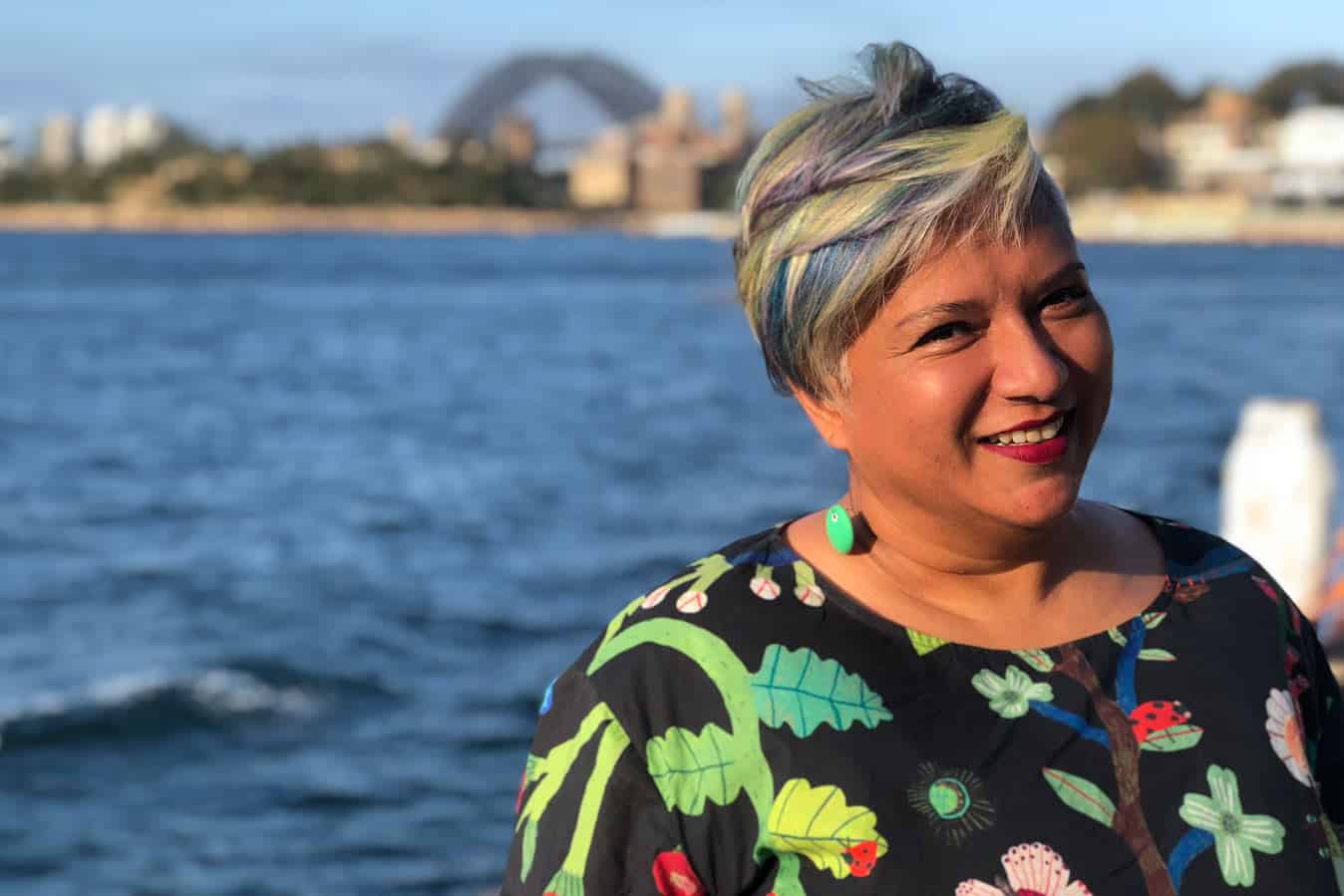A mental health clinician, tertiary nursing educator, and currently, a multi-disciplinary researcher looking at everything from cultural safety in workplaces through to new technologies, Dr Ruth De Souza has led a long and industrious career.
Dr De Souza’s studies have fuelled her career, and her research in areas such as sociology, critical theory and post-colonial theory has led to academic postings such as in her current role as a Vice Chancellor’s fellow with RMIT’s art and design departments. She says there has been a thread that bridges her varied interests in her nursing and academic career.
“On the hard ground, are things like… ‘Someone’s got a raised blood pressure,’ and it’s really clear what you have to do… the swampy ground is those more complex questions of ethics, politics, resource allocation and distribution, and caring,” she explains.
“Not everything can be answered within our discipline [nursing]. I’ve had to go and look outside of that… trying to find creative, interesting [and] playful ways to kind of engage questions that are very swampy.”
This theoretical approach initially seems far removed from the practical day-to-day care that most outsiders automatically link with nursing.
However, by working with local artists and creative producers, Dr De Souza uses creative arts and “bridge-building” to encourage people to participate in a more equitable system of healthcare and cultural exchange.
One such project, run at North Richmond Community Health with Melbourne-based artist Debris Facility, used specially designed data boxes (fashioned from old cake boxes) to engage pregnant and post-partum women of refugee background with ideas of access to digital health data years before the introduction of the My Health Record to the general public.
Another project at the Centre also looked at educating older members of the community about the different ways they could use their phones to promote wellbeing. Dr De Souza has also consulted with organisations across Victoria looking at ways in which concepts of cultural safety could be applied in gender equity, mental health promotion, and recreational and arts-based contexts, including roller derby.
More recently, she was an academic co-convener at the University of Melbourne’s Data, Systems and Society Research Network (DSSRN). Statelessness in Australia, the treatment of people with mental health in emergency departments, cultural trust in museums as well as the community’s response to the federal government’s COVIDSafe app are all among the topics she is currently collating research on.
However, despite the varied terrain, the East African-born and New Zealand-raised Goan researcher regularly returns to cultural safety, a concept she possesses an historical understanding of and distinguishes from terms such as “cultural competence”.
“In New Zealand, it started out being about largely Indigenous Maori people, but then it came to be about, how does the individual nurse work safely with a whole group of different people?” she explains, noting that cultural safety puts the onus on the health practitioner to develop and consider their own cultural backgrounds and assumptions.
“[It] says, ‘OK, what am I taking into the care that I give to people and how do I acknowledge that I have power and what kind of moral commitment do I have to your wellness if you’re different from me?’ and also thinking about structural and historical positioning.
“It’s not about our intentions, it’s about the outcome for the person or the community.”
Dr De Souza says these concepts hold particular relevance to the current political context, including the Black Lives Matter movement and local protests against Deaths in Custody, as well as the way migrants and people of colour have been disproportionally affected by COVID-19, both as patients and workers.
“Care’s not just about being kind and good, there’s also power relations involved in caring… It’s not a neutral activity, it’s politically charged,” Dr De Souza says.
“All bodies are not treated the same and we’re not affected by the virus in the same way… how we do healthcare actually matters… There’s some arguments that the failure to care, and poor quality [of care], are actually embedded in the structures and processes of the healthcare system.”
A passionate believer in the need for nurses to “fearlessly” advocate for the profession’s insights into areas of social equity, it is clear that Dr De Souza is absorbed in the excitement of thinking up solutions to knotty problems.
Nevertheless, was this what she expected when she signed up to join New Zealand’s nursing workforce more than 30 years ago?
“Nothing has turned out the way I thought it would, absolutely nothing,” Dr De Souza says, before reflecting on her current working situation.
“It’s a wild ride… but I do feel like I’ve landed somewhere very exciting right now for the next three years.”









8 Responses
Lovely commentary Ruth especially coming back to #culturalsafety
Kia ora e hoa!
Congratulations Dr. Ruth, proud of you. God bless.
. Cuz… Cliff
Thanks cuz, only just seeing this now!
Congratulations Ruth proud of ur achievements.
Thanks so much for your kind words!
So wonderful to hear again from Dr Ruth D’Souza, a passionate nurse and academic
HOw lovely to hear from you! Love your work!